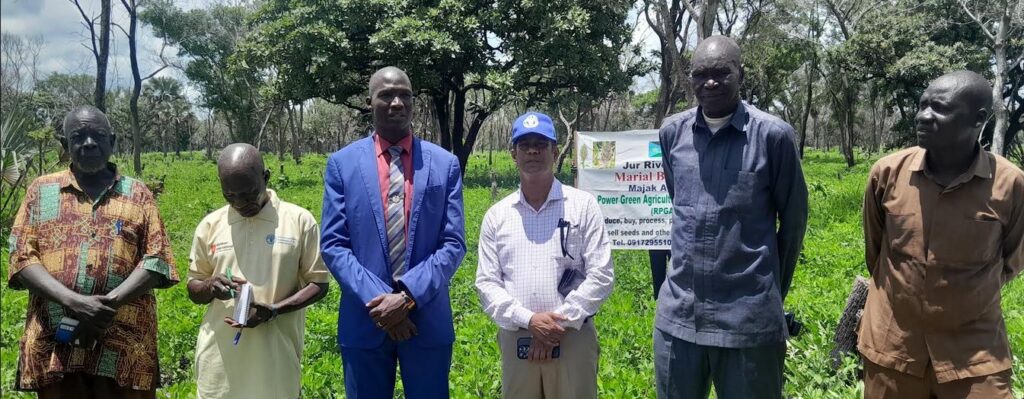Farmers in Western Bahr el Ghazal State are expecting bountiful crops this year despite receiving seeds late this year.
On Tuesday and Wednesday, the state’s agriculture minister and the head of the UN Food and Agriculture Organization (FAO) in the state led a visit to Jur River and Wau counties to assess the performance of farmers this year.
Speaking to the media in Jur River County’s Marial-Bai area, Western Bahr el Ghazal State Agriculture Minister Velantino Akec said the state government is prioritizing agricultural production to fight hunger.
“As a government, we have prioritized agriculture in the state and the whole country and that is why we have decided to tour and assess the situation of the farmers in the state,” he said. “Our farmers have performed well according to our observation and we realized that all farmers have cultivated this year. We have realized that our state’s harvest will be high despite the challenges our farmers face.”
Minister Akec added: “We are happy that the farmers listened to the government and put agriculture as a priority.”
He lauded FAO for providing seeds to the farmers in the state and pledged to address the complaints raised by the farmers, including delayed distribution of seeds.
For his part, Juma Suleman, a farmer in Wau County’s Bussere area, said they lack modern farming tools like tractors.
“The farmers do not have a tractor. I cultivated this place using a borrowed tractor from Loyola School, which is difficult to get. It takes time because you have to wait in line yet farmers need to cultivate on time,” he stated. “There are tillers that can help in cultivation and we want them to procure them so that we can buy them. We are not asking for them for free, bring them to the Ministry of Agriculture so that we can pay for them in installments. This will help us to increase our manpower.”
Meanwhile, Santino Manut Akec, a farmer in Marial-Bai, urged the FAO not to procure seeds from neighboring countries because they do not do well in South Sudan.
“The best seeds are within South Sudan because seeds germinate well through the type of soil but the seeds imported from outside do not produce well here,” he said. “Our seeds like groundnuts can produce over 100 to 150 pieces, which is why we are saying we do not want seeds imported from outside. It is good that the minister of agriculture and the director of FAO are here, the seeds that do well with our soils are our local seeds.”
Manut added: “There are different climates in Kenya, Uganda, and South Sudan and this will not allow the sorghum seeds imported from elsewhere to do well here.”




